calsfoundation@cals.org
Libraries
Libraries serve an important role in offering Arkansas’s citizens access to information and resources. Various types of libraries exist in Arkansas, including public libraries open to all citizens, school libraries that serve primary and secondary schools, academic libraries that support colleges and universities, and special libraries that fill unique roles.
The earliest libraries in what became Arkansas were private collections of books owned by French and Spanish settlers in the Arkansas Post area. Due to the difficulty of bringing books from Europe, these collections typically consisted of only a small number of volumes.
After the purchase of the Louisiana Territory by the United States, the area that would become Arkansas began to attract more settlers. As additional people moved into the state, settlements began to grow. Private libraries continued to expand in the state, and books were often borrowed by neighbors and other citizens. Hiram Whittington established an early lending library in Hot Springs (Garland County) in 1833. Albert Pike owned an expansive private library and lent books to friends, leading him to publish a column in a local newspaper calling for their return. Men studying to become lawyers typically utilized the law libraries of attorneys in the state to prepare for admission to the bar. For example, Patrick Cleburne used the law library owned by the Hanley and Alexander Law Firm in Helena (Phillips County) to study for his bar examination. An early lending library created by William Woodruff in Little Rock (Pulaski County) began operations in August 1843 (following a rather short-lived attempt at the same in 1826). The library was open to the public, and membership cost patrons two dollars annually. The library operated at least until Little Rock fell to Federal forces in 1863 during the Civil War. When a fire broke out in a nearby building, efforts to save the books led to their placement on the street, where nearby Union soldiers claimed at least some of the collection.
The early twentieth century saw a boom in the founding and building of public libraries across the United States, including in Arkansas. Women’s groups across the state were instrumental in founding these libraries. While many of these groups were literary organizations or established solely to create a library, some were women’s clubs with broader missions. The first library established in the state by a women’s group was in Hot Springs in 1881 when the Woman’s Christian National Library Association began operations. Between 1881 and 1990, sixty-four libraries were created by women’s groups across the state.
The Arkansas General Assembly passed a bill in 1903 allowing cities to collect a 0.25 mill in taxes on real and personal property, and the law was expanded in 1904 to extend the collection to support libraries. Funded by grants from the Carnegie Foundation, four libraries were constructed in the state between 1906 and 1915. By 2021, the Carnegie libraries in Morrilton (Conway County) and Eureka Springs (Carroll County) continued to operate as libraries, while the Carnegie library in Fort Smith (Sebastian County) housed a television station; the Little Rock Public Library was demolished in 1963. The columns from Little Rock’s Carnegie library were installed in front of the Main Library of the Central Arkansas Library System (CALS) in 2009.
Limited library access for African Americans existed across the state from the late nineteenth century to the mid-twentieth century. Early public libraries in the state were segregated, as were most public facilities, but sometimes African Americans could access private libraries owned by whites; Scipio Jones, for example, read law in the offices of several judges in Little Rock before passing the state bar examination in 1889. Several efforts to start libraries for African Americans in Little Rock in the late nineteenth century were unsuccessful. A branch of what later became CALS serving the African-American community opened on 9th Street in Little Rock in 1917. One library assistant worked in the branch, which held about 1,200 books when it opened. The Little Rock Public Library Board of Trustees received advice from a three-member elected advisory board of African Americans. Moving to West 16th Street in 1941, the branch (later named after Helen Booker Ivey) continued to operate through the 1960s, joined by other library services for African Americans across the state. Widespread library access for African Americans in the state did not become a reality until the 1960s and 1970s with the desegregation of public libraries in Arkansas.
The State of Arkansas began supporting library operations in 1921 with the creation of the Free Library Service Bureau as part of the Arkansas Department of Education, with operations beginning in 1923 when the bureau first received an appropriation. This department worked with counties and cities to create libraries across the state. Some efforts were made for the bureau to work with school libraries, and a grant from the Julius Rosenwald Fund in 1930 to support operations expanded the reach of the bureau. The Arkansas General Assembly did not appropriate any funding for the bureau after 1933, leading to its closure at the end of June.
Created by the Arkansas General Assembly in 1935, the Arkansas Library Commission first received funding in the 1937 biennial session. Tasked with distributing library funding, providing guidance for librarians and governing boards, and encouraging the establishment of additional libraries, the commission operated as an independent body until the 1971 reorganization of state government, which saw it placed in the Department of Education. In 1979, the General Assembly established the Arkansas State Library and abolished the Library Commission.
Governed by the State Library Board, the Arkansas State Library is led by the state librarian. Required to hold a graduate degree accredited by the American Library Association, the state librarian manages the daily operations of the state library. Continuing to support local libraries across Arkansas, the State Library also serves as a centralized library with multiple collections. Items in the library include collections on Arkansas, reference materials, and government documents. The library also includes the Arkansas Regional Library for the Blind and Physically Handicapped. The State Library Board includes seven members appointed by the governor, with the state librarian serving as the secretary for the group.
School libraries play an important role in connecting children to information resources. Early school libraries in Arkansas often included small collections of books stored in the corner of the classroom. School consolidation efforts in 1929 led to the creation of larger schools and, in turn, larger school libraries. Many children in Arkansas first experience library services when visiting their school library. The Arkansas Association of School Librarians, a division of the Arkansas Library Association (ArLA), represents school librarians in the state.
Higher education institutions across the state include library resources on their campuses. Early colleges in the state had small collections of books for the use of students and faculty but did not operate in the same manner as modern libraries. Collections were often haphazardly gathered with little attention to detail, and a librarian was rarely dedicated to the library full time. Colleges that opened in the nineteenth century often began operations without a library collection.
The University of Arkansas (UA) in Fayetteville (Washington County) opened in 1872 without a library. By the next year, 137 books for student use were purchased, and in 1874, a total of $350 for the purchase of library materials was appropriated. Students supervised early operations of the library, a duty later assumed by faculty members until the employment of a full-time librarian in 1894. The collection expanded over the decades, and trained librarians began to be employed by the university to turn the library into a research facility.
The regional agricultural schools that were established in 1909, which developed into junior colleges and later into universities, each added libraries as the curriculum expanded. These regional schools are today known as Arkansas State University (ASU), Arkansas Tech University, Southern Arkansas University (SAU), and the University of Arkansas at Monticello (UAM). The initial holdings of these libraries included government documents and agricultural bulletins, collected to support the mission of the institutions. As the missions of the schools expanded and college-level coursework was added, the libraries likewise grew.
Arkadelphia Methodist College began operations in 1890, and all faculty members were required to subscribe to a professional journal in their field and place those titles in the college library. The library grew with the addition of a librarian the following year. Further expansions of the library came when the institution was transferred to state control as Henderson State Teachers College in 1929.
In the twenty-first century, all colleges and universities in the state operate libraries to support student learning and faculty research. Many of these libraries also offer some services to the general public.
The Arkansas Library Association (ArLA) is a statewide organization created in 1911 to support libraries and library staff. Organized in Little Rock, the organization originally focused on supporting public libraries and increasing funding levels at those institutions. Over the next several decades, other libraries and librarians gained membership. A newsletter began to be published in 1925, and it evolved into Arkansas Libraries, a quarterly journal focused on library issues in the state. The original Arkansas Libraries was published by the Free Library Service Bureau between 1930 and 1933.
ArLA works with librarians and libraries across the state to offer professional development opportunities. Hosting an annual conference, publishing Arkansas Libraries, and supporting Arkansans pursuing graduate degrees in library science, the organization continues to be active in the twenty-first century.
ARKLink is a consortium of more than fifty academic libraries in the state that work together to obtain electronic databases. It began as part of the College and University Library Division of ArLA but was established as a distinct organization in 1998. Libraries pay dues to the organization, which meets regularly to make group purchasing decisions. The consortium also allows patrons from member libraries to borrow materials from other member libraries using a library card issued by ARKLink.
In addition to public, academic, and school libraries, several special libraries have existed in Arkansas, including the Arkansas Supreme Court Library and the library at Historic Washington State Park. Housed in the Walters Community Support Center, the Base Library serves the residents of Little Rock Air Force Base. The National Center for Toxicological Research in Jefferson (Jefferson County) includes a library to support the research conducted at the facility. The University of Arkansas for Medical Sciences (UAMS) has included a library since at least 1890, when an announcement of the new building in Little Rock mentioned the facility. The library expanded over the decades as the college grew and moved to new locations in Little Rock. The library began serving not only UAMS but also healthcare professionals across the state. The volunteer-staffed Women’s Library opened in 1982 in Fayetteville. The library offered materials related to women’s rights and self-education, and patrons who paid a membership fee were allowed to borrow materials. The library closed in 2000, and the collection and related materials were donated to the University of Arkansas Libraries Special Collections.
One example of a special library operated by a public library system in the state is the Hillary Rodham Clinton Children’s Library & Learning Center, part of CALS. The library offers not only traditional library resources for children and their families, but also a greenhouse and teaching garden, a teaching kitchen, and walking paths, among other unique offerings. The Bobby L. Roberts Library of Arkansas History & Art, also part of CALS, contains resources related to the history and culture of the state, including archival and art collections.
Training for school librarians is offered at three universities in the state: Arkansas Tech University, the University of Central Arkansas, and Southern Arkansas University. The University of Arkansas at Little Rock offered a Master of Library Science degree for a period in the 1980s, but no degrees accredited by the American Library Association have ever been offered in Arkansas.
During the 2022 midterm election year, public libraries increasingly became the target of conservative activists fostering a national moral panic about materials relating to the LGBTQ+ community being available for children to check out and about events with an LGBTQ+ focus. As a result, libraries across the country had their funding cut or were closed entirely. On November 8, 2022, Craighead County residents approved a petition to cut the millage supporting the operation of the Jonesboro/Craighead County Public Library in half. On January 19, 2023, state representative Dan Sullivan of Jonesboro (Craighead County), a supporter of that initiative, filed SB81, which would originally would have made the lending of material deemed “harmful to minors” by a library a felony, in addition to permitting civil suits against cities, counties, and the state should libraries disseminate material “that is claimed to be obscene.” After revision, it would require that a head librarian in receipt of a parent complaint appoint a review group of five library employees to consider the complaint and issue a judgment, after which the parent could then take the complaint to the next higher-up relevant body (quorum court, city council, or school board), which could then order a book pulled from the shelves and charge a librarian with a felony for failure to do so. This revised bill passed the Senate on February 22, 2023, but failed to advance out of committee in the House on the first try but went forward on March 9, 2023. Governor Sarah Huckabee Sanders signed the bill into law (Act 372) on March 30, 2023.
On February 21, 2023, the Crawford County Quorum Court voted to approve spending more than $40,000 to secure the resignation of county library director Deidre Grzymala after a local group, the River Valley City Elders, self-described as the “Watchmen on the Wall who exist to govern the gates of our cities spiritually through prayer, unity, and activism,” complained about the books available at the library. (The Crawford County Quorum Court later, in August, temporarily delayed the acceptance of a grant from the American Library Association to make the library more accessible to those with disabilities after some local residents wrongly asserted that the ALA was a “radical advocacy organization” requiring grant recipients to display pornographic materials.) Local contention over meeting room use led the Faulkner County Library to suspend the availability of its own public meeting spaces in March 2023. On April 17, 2023, the Saline County Quorum Court approved a resolution requesting that the Saline County Library remove from the children’s section certain books that featured gay characters or discussed issues of race and racism after the group Saline County Republican Women issued a statement protesting the presence of such books. The local Republican committee later rented a billboard along Interstate 30 accusing the library of providing “x-rated” books. On July 17, 2023, the justices of the peace rejected a proposal that would have placed many of the powers of the library board, such as hiring and firing staff, and placed them under the county judge and quorum court. However, on August 21, 2023, the quorum court overwhelmingly approved an ordinance that stripped the library board of its ability to hire and fire staff and to set salaries (investing that power with the county judge), subjected the library to annual third-party audits, and required that the library’s budget be approved by the quorum court. On October 9, 2023, Saline County Judge Matt Brumley fired the executive director of the Saline County Library, Patty Hector. In May 2024, Hector was announced as the recipient of the American Library Association’s Lemony Snicket Prize for Noble Librarians Faced with Adversity.
In response to Act 372, Nate Coulter, executive director of the Central Arkansas Library System, pledged that CALS would defend any librarian charged with a crime under the new law. On May 25, 2023, the CALS board voted to authorize a lawsuit in federal court, joining other libraries and organizations, challenging the constitutionality of certain elements of Act 372; the lawsuit was filed on June 2, 2023. On May 26, 2023, a group of three Crawford County parents filed suit in the United States District Court for the Western District of Arkansas against the local county judge, quorum court, library board, and library director, alleging “unlawful censorship of materials.” Other library systems responded to the threat of Act 372 differently. For example, the Carroll and Madison County Library System based in Eureka Springs instituted a policy blocking all borrowing from youth unless signed permission slips were provided by parents. On July 29, 2023, U.S. District Judge Timothy Brooks issued a preliminary injunction against Act 372, preventing it from going into effect; before a trial could take place, on December 23, 2024, Judge Brooks struck down Sections 1 and 5 of Act 372, the sections that made “furnishing a harmful item to a minor” a criminal offense and that required libraries to institute a process allowing anyone to “challenge the appropriateness” of library materials. In January 2025, Attorney General Tim Griffin asked permission to file an appeal of the decision.
Meanwhile, On October 23, 2023, at a meeting of the legislature’s Joint Performance Review Committee, Sen. Sullivan advocated withholding state funds from the Arkansas Library Association, despite the fact that the organization receives no direct state funding. On September 30, 2024, Judge P. K. Holmes III of the United States District Court for the Western District of Arkansas ordered officials in Crawford County to cease the practice of segregating books with LGBTQ+ themes into a special section.
During the 2025 legislative session, Sen. Sullivan introduced SB 181, which permits individuals to qualify for a job as director of a regional library or the Arkansas State Library by substituting work experience in the place of a master’s degree from a program accredited with the American Library Association. He also introduced SB 184, a bill to abolish the Arkansas State Library Board and the Arkansas Educational Television Commission and transfer their powers, duties, and funding to the Arkansas Department of Education. SB 181 was signed into law as Act 242, but SB 184 stalled in the legislative process, and Sullivan later introduced SB 536, a bill that would abolish the Arkansas State Library and its board, restrict the access of minors to certain books and other media deemed to be “age-inappropriate material,” and establish minimum service hours for libraries depending upon the size of the population they serve. SB 536 passed the Arkansas Senate on April 2, 2025, but it was voted down in a House committee. However, Sen. John Dismang of Searcy (White County) filed SB 640, which would end the terms of present members of the State Library Board and allow the governor to appoint seven new board members; this bill passed both houses by April 15, 2025, and Gov. Sanders signed the bill into law (Act 903) on April 21. That same day, she signed HB 1646 (Act 917), introduced by Rep. Richard McGrew of Hot Springs; this law requires school librarians serving students from kindergarten to fifth grade to “store non-age-appropriate sexual content … in a locked compartment within a designated area,” but the law does not specify who is to make any determination about what is not age-appropriate.
Public libraries serve patrons in every county of the state. Operating under a variety of governing structures with support from cities, counties, and the state, public library resources are available to almost every citizen. Several regional public library systems exist in the state to share resources.
For additional information:
Allen, James A. “History of Automated Library Cooperation in Arkansas.” Arkansas Libraries 35 (September 1978): 15–18.
Arkansas Library Association. https://www.arlib.org/ (accessed February 27, 2021).
Arkansas State Library. https://library.arkansas.gov/ (accessed February 27, 2021).
Ashcraft, Carolyn. “Serving the Blind.” Arkansas Libraries 69, no. 1 (2012): 4–5.
Bell, Joyce S. “South Sebastian County [Ark.] Library Development.” Arkansas Libraries 22 (April 1966): 18–19.
Black, Robert E. “History of Public Library Cooperation in Arkansas.” Arkansas Libraries 60, no. 5 (2003): 6–11.
Bryant, Jimmy, and David Bowie. “When Torreyson Library Was State Normal School Library.” Arkansas Libraries 59, no. 1 (2002): 25–27.
Deweese, Don B. “History of Arkansas Libraries.” Arkansas Libraries 50 (October 1993): 5–8.
Eichkorn, Paige. “Library Chief Decries GOP’s ‘X-Rated’ Book Billboard.” Arkansas Democrat-Gazette, May 17, 2023, pp. 1B, 3B. Online at https://www.arkansasonline.com/news/2023/may/17/library-chief-decries-gops-x-rated-book-billboard/ (accessed May 17, 2023).
———. “Saline County Judge Fires Library’s Director.” Arkansas Democrat-Gazette, October 10, 2023, pp. 1A, 3A. Online at https://www.arkansasonline.com/news/2023/oct/09/saline-county-library-director-patty-hector-removed-from-job/ (accessed October 10, 2023).
———. “Saline County Library Facing More Scrutiny.” Arkansas Democrat-Gazette, May 29, 2023, pp. 1B, 3B. Online at https://www.arkansasonline.com/news/2023/may/29/saline-county-library-facing-more-scrutiny/ (accessed May 30, 2023).
Embry, Callie Spear. “The Role of Arkansas Rural Libraries in Cultural Capital Development.” PhD diss., University of Arkansas, 2025. Online at https://scholarworks.uark.edu/etd/5713/ (accessed June 23, 2025).
England, Gunter L. “DeQueen Library, from Then to Now.” Arkansas Libraries 28 (December 1972): 17–19.
Flaherty, Joseph. “Act 372 Contested in Filings.” Arkansas Democrat-Gazette, June 23, 2023, pp. 1B, 2B. Online at https://www.arkansasonline.com/news/2023/jun/23/attorneys-for-coalition-of-libraries-booksellers/ (accessed June 23, 2023).
———. “Libraries, Booksellers Sue to Stop Act 372 Restrictions.” Arkansas Democrat-Gazette, June 3, 2023, pp. 1A, 4A. Online at https://www.arkansasonline.com/news/2023/jun/02/libraries-booksellers-sue-to-overturn-parts-of-new-arkansas-law-on-library-materials/ (accessed June 5, 2023).
———. “Library Funds Legal Scrutiny.” Arkansas Democrat-Gazette, April 28, 2023, pp. 1B, 2B. Online at https://www.arkansasonline.com/news/2023/apr/28/anticipating-a-lawsuit-central-arkansas-library/ (accessed April 28, 2023).
———. “Library System to Contest Book Law.” Arkansas Democrat-Gazette, May 26, 2023, pp. 1A, 8A. Online at https://www.arkansasonline.com/news/2023/may/26/central-arkansas-library-systems-board-authorizes/ (accessed May 26, 2023).
———. “State Library Law Partially Blocked.” Arkansas Democrat-Gazette, July 30, 2023, pp. 1A, 8A. Online at https://www.arkansasonline.com/news/2023/jul/30/enforcement-of-two-parts-of-new-arkansas-law-on/ (accessed July 31, 2023).
———. “System Promises to Defend Librarians.” Arkansas Democrat-Gazette, April 2, 2023, pp. 1B, 5B. Online at https://www.arkansasonline.com/news/2023/apr/02/head-of-central-arkansas-library-system-pledges/ (accessed April 3, 2023).
Graves, Britt. “Public Libraries in Rural Arkansas: An Oasis in an Information Desert.” MA thesis, University of Arkansas, 2022.
Hartsell, Lynaire. “ALPS: Past, Present, and Future.” Arkansas Libraries 66, no. 4 (2009): 6–7.
Hogan, J. B. “Early History of the Fayetteville Public Library.” Flashback 73 (Winter 2023): 173–177.
Hutchins, B. L. “Arkansas Enjoyed Libraries and Books Back in the 1840’s.” Arkansas Libraries 6 (October 1949): 11–12.
Joenks, Laurinda. “Resolution Supporting Library Staff Advances.” Arkansas Democrat-Gazette, July 18, 2023, pp. 1B, 6B. Online at https://www.arkansasonline.com/news/2023/jul/18/resolution-supporting-library-staff-advances/ (accessed July 18, 2023).
Langhorne, Will. “Bill Adding Rules for Libraries Gets House Panel OK.” Arkansas Democrat-Gazette, March 10, 2023, pp. 1B, 3B. Online at https://www.arkansasonline.com/news/2023/mar/10/house-panel-passes-bill-addressing-obscene/ (accessed March 10, 2023).
———. “Bill Removing Protection for Librarians Fails.” Arkansas Democrat-Gazette, March 8, 2023, pp. 1B, 2B. Online at https://www.arkansasonline.com/news/2023/mar/08/arkansas-house-committee-fails-to-advance-bill/ (accessed March 8, 2023).
———. “Governor Signs into Law Library-Book Challenge Bill.” Arkansas Democrat-Gazette, April 1, 2023, p. 3B. Online at https://www.arkansasonline.com/news/2023/apr/01/sanders-signs-bill-for-challenging-books/ (accessed April 3, 2023).
———. “Library Bills Moves to Full Senate.” Arkansas Democrat-Gazette, March 28, 2023, p. 3B. Online at https://www.arkansasonline.com/news/2023/mar/28/arkansas-senate-panel-advances-bill-concerning/ (accessed March 28, 2023).
———. “Library Obscenity Bill Clears Legislative Panel.” Arkansas Democrat-Gazette, February 21, 2023, pp. 1A, 3A. Online at https://www.arkansasonline.com/news/2023/feb/21/bill-addressing-obscene-materials-in-public/ (accessed February 21, 2023).
———. “State House OKs Library-Book Bill.” Arkansas Democrat-Gazette, March 16, 2023, p. 3B. Online at https://www.arkansasonline.com/news/2023/mar/16/arkansas-house-advances-bill-intended-to-regulate/ (accessed March 16, 2023).
Loch, Sarah. “Lincoln Public Library.” Arkansas Libraries 73 (2016): 10.
Logan, Coy. “History of Carroll County Library Service.” Arkansas Libraries 12 (July 1955): 12–13.
Malone, Elizabeth Margaret. “History of the Public Library of Jonesboro and Craighead County.” Arkansas Libraries 7 (July 1950): 6–8.
Martin, Marilyn. “From Altruism to Activism: The Contributions of Women’s Organizations to Arkansas Public Libraries.” PhD diss., Texas Woman’s University, 1993.
McCrary, W. W. “Lonoke County Library.” Arkansas Libraries 30 (July 1973): 10–12.
“Negro Library Service in Arkansas,” Arkansas Libraries 2 (July 1945): 6.
Nguyen, Sophia. “Arkansas Is Sued over Criminal Ban on Providing ‘Harmful Books’ to Minors.” Washington Post, June 9, 2023. https://www.washingtonpost.com/books/2023/06/09/arkansas-libraries-booksellers-lawsuit/ (accessed June 12, 2023).
Parker-Graves, Ashley. “Celebrating 85 Years: A Brief History of the Malvern–Hot Spring County Library.” Arkansas Libraries 70, no. 1 (2013): 20.
Razer, Bob. “A Chapter in Arkansas Library History: When the American Library Association Came to Arkansas.” Arkansas Libraries 43 (March 1986): 23–31.
———. “A Chapter in Arkansas Library History: Charles Hillman Brough—ALA President and Governor of Arkansas.” Arkansas Libraries 43 (September 1986): 31–39.
———. “A Chapter in Arkansas Library History: The Library Association’s Fourth Quarter Century, 1987–2011 (Part 1).” Arkansas Libraries 68, no. 3 (Fall 2011): 8–11.
———. “A Chapter in Arkansas Library History: The Library Association’s Fourth Quarter Century, 1987–2011 (Part 2).” Arkansas Libraries 68, no. 4 (2011): 14–19.
———. “A History of the Arkansas Library Association.” Arkansas Libraries 43 (December 1986): 6–15.
Razer, Bob, and Valerie Thwing. “A Chapter in Arkansas Library History: Cecil Edmonds and Operation Library.” Arkansas Libraries 43 (June 1986): 33–43.
Roberts, Bobby. “Arkansas’ Carnegie Libraries.” Arkansas Libraries 35 (December 1978): 17–19.
Roper, Gracie. “Librarians Are Not Babysitters: Enacting Legislation to Curtail Unconstitutional Book Bans.” University of Arkansas at Little Rock Law Review 47 (Fall 2024): 83–106. Online at https://mydigitalpublication.com/publication/?i=833960 (accessed December 27, 2024).
Russ, Ron. “American Library Association Councilor History: 1984–2011.” Arkansas Libraries 68, no. 3 (2011): 13–15.
Saccente, Thomas. “Crawford County Library Board to Look at Collection Policy Changes.” Arkansas Democrat Gazette, River Valley section, March 13, 2023, pp. 1, 2. Online at https://www.arkansasonline.com/news/2023/mar/12/crawford-nwcounty-board-to-consider-proposal-to/ (accessed March 13, 2023).
———. “Crawford County Sued over Library.” Arkansas Democrat-Gazette, May 31, 2023, pp. 1B, 6B. Online at https://www.arkansasonline.com/news/2023/may/31/crawford-county-faces-federal-civil-rights/ (accessed May 31, 2023).
Savage, Ashley. “Library Suspends Meetings for Public.” Arkansas Democrat-Gazette, March 2, 2023, pp. 1B, 2B. Online at https://www.arkansasonline.com/news/2023/mar/02/after-controversy-over-story-time-events-faulkner/ (accessed March 2, 2023).
Schmid, Dusty. “The Decade of the Paraprofessional: A Brief History of the Growth of Paraprofessional Involvement in the Arkansas Library Association.” Arkansas Libraries 56, no. 4 (1999): 10–11.
Schmidt, Sabine, and Don House. Remote Access: Small Public Libraries in Arkansas. Fayetteville: University of Arkansas Press, 2021.
Schuette, Shirley, and Nathania Sawyer. From Carnegie to Cyberspace: 100 Years at the Central Arkansas Library System. Little Rock: Butler Center Books, 2010.
Sesser, David. “Clark County Library System.” Arkansas Libraries 69, no. 2 (2012): 10–11.
———. “Garland County Library.” Arkansas Libraries 69, no. 4 (2012): 24–25.
———. “This History of Huie Library.” Academic Forum 30 (2012–2013): 32–37.
———. “The Smallest Library in Arkansas.” Arkansas Libraries 68, no. 4 (2011): 24.
———. “A Wealth of Resources in Southwest Arkansas: The Library at Historic Washington State Park.” Arkansas Libraries 67, no. 2 (2010): 8–9.
Sissom, Tom. “Libraries Prepare for Challenges to Books.” Arkansas Democrat-Gazette, July 24, 2023, p. 3B. Online at https://www.arkansasonline.com/news/2023/jul/24/washington-county-libraries-prepare-for/ (accessed July 24, 2023).
Snyder, Josh. “Act 372 Doesn’t Apply to Online Items, AG Says.” Arkansas Democrat-Gazette, April 24, 2023, pp. 1A, 2A. Online at https://www.arkansasonline.com/news/2023/apr/24/library-directors-in-arkansas-express-worry-over/ (accessed April 24, 2023).
———. “Arkansas Queried on Library Law Term.” Arkansas Democrat-Gazette, July 26, 2023, pp. 1A, 4A. Online at https://www.arkansasonline.com/news/2023/jul/26/judge-questions-attorneys-over-use-of-minors-in/ (accessed July 26, 2023).
———. “County Judge Addresses Library Tiff.” Arkansas Democrat-Gazette, June 27, 2023, pp. 1B, 6B. Online at https://www.arkansasonline.com/news/2023/jun/27/saline-county-judge-defends-library-resolution/ (accessed June 27, 2023).
———. “County’s JPs Hold off on Library Board Vote.” Arkansas Democrat-Gazette, June 20, 2023, pp. 1A, 7A. Online at https://www.arkansasonline.com/news/2023/jun/20/saline-county-quorum-court-reads-hears-public/ (accessed June 20, 2023).
———. “Legislators Take Aim at Library Alliance.” Arkansas Democrat-Gazette, March 16, 2025, pp. 1A, 5A. Online at https://www.arkansasonline.com/news/2025/mar/15/legislators-in-arkansas-elsewhere-target-american/ (accessed March 17, 2025).
———. “Libraries of Things Take off in State.” Arkansas Democrat-Gazette, September 5, 2023, pp. 1B, 2B. Online at https://www.arkansasonline.com/news/2023/sep/05/libraries-of-things-in-arkansas-continue-to/ (accessed September 5, 2023).
———. “Proposed Ordinance to Be Voted on As-Is.” Arkansas Democrat-Gazette, July 20, 2023, pp. 1B, 4B. Online at https://www.arkansasonline.com/news/2023/jul/20/saline-county-jps-reject-amendment-to-proposed/ (accessed July 20, 2023).
———. “Proposed Saline County Ordinance Puts Library under County Judge.” Arkansas Democrat-Gazette, June 7, 2023, pp. 1B, 2B. Online at https://www.arkansasonline.com/news/2023/jun/07/saline-county-quorum-court-to-consider-measure-to/ (accessed June 7, 2023).
———. “Relocation of Some Library Items Sought.” Arkansas Democrat-Gazette, April 18, 2023, pp. 1B, 6B. Online at https://www.arkansasonline.com/news/2023/apr/18/relocation-of-some-library-items-sought/ (accessed April 18, 2023).
———. “Saline JPs Approve Library Board Limits.” Arkansas Democrat-Gazette, August 22, 2023, pp. 1A, 7A. Online at https://www.arkansasonline.com/news/2023/aug/22/saline-county-jps-ok-rule-expanding-powers-over/ (accessed August 22, 2023).
Terry, Adolphine. “Early History of the Arkansas Library Program,” Arkansas Libraries 28 (Winter 1972): 11–13.
Thompson, Doug. “Pressure Builds on Libraries in State.” Arkansas Democrat-Gazette, March 12, 2023, pp. 1B, 3B. Online at https://www.arkansasonline.com/news/2023/mar/12/increasing-scrutiny-of-libraries-in-arkansas-part/ (accessed March 13, 2023).
Tillman, Rosebud Harris. “The History of Public Library Service to Negroes in Little Rock, Arkansas, 1917–1951.” (1953). ETD Collection for AUC Robert W. Woodruff Library, Paper 1650.
United States Office of Education. Educational Directory, 1930. Washington DC: Government Printing Office, 1929.
Vrbin, Tess. “Arkansas Librarians Brace for Impact of Law Making Them Liable for ‘Obscene’ Content.” Arkansas Advocate, May 1, 2023. https://arkansasadvocate.com/2023/05/01/arkansas-librarians-brace-for-impact-of-law-making-them-liable-for-obscene-content/ (accessed May 1, 2023).
———. “Arkansas Libraries Revise Policies in Anticipation of Law on ‘Obscene’ Content Taking Effect.” Arkansas Advocate, July 24, 2023. https://arkansasadvocate.com/2023/07/24/arkansas-libraries-change-policies-in-anticipation-of-law-on-obscene-content-taking-effect/ (accessed July 24, 2023).
———. “Challenges to Public Library Funding throughout Arkansas Meet Frustration, Some Resistance.” Arkansas Advocate, December 27, 2024. https://arkansasadvocate.com/2024/12/27/challenges-to-public-library-funding-throughout-arkansas-meet-frustration-some-resistance/ (accessed December 27, 2024).
———. “Crawford County Parents Sue Library System over Relocation of LGBTQ+ Children’s Books.” Arkansas Advocate, May 26, 2023. https://arkansasadvocate.com/2023/05/26/crawford-county-parents-sue-library-system-over-relocation-of-lgbtq-childrens-books/ (accessed May 30, 2023).
———. “Law Limiting Access to LGBTQ Books in School Libraries Began with Rural Arkansas District.” Arkansas Advocate, June 16, 2025. https://arkansasadvocate.com/2025/06/16/law-limiting-access-to-lgbtq-books-in-school-libraries-began-with-rural-arkansas-district/ (accessed June 16, 2025).
———. “Law on Book Challenges, ‘Indoctrination’ Create Culture of Fear in Arkansas School Libraries.” Arkansas Advocate, January 1, 2024. https://arkansasadvocate.com/2024/01/01/laws-governing-book-challenges-indoctrination-create-culture-of-fear-in-arkansas-school-libraries/ (accessed January 2, 2024).
———. “Library System Millage 2nd-Highest in State.” Arkansas Democrat-Gazette, November 7, 2021, pp. 1A, 11A. Online at https://www.arkansasonline.com/news/2021/nov/07/library-system-millage-2nd-highest-in-state/ (accessed November 8, 2021).
———. “Public Libraries vs. Quorum Courts: An Ongoing Local Conflict throughout Arkansas.” Arkansas Advocate, December 26, 2023. https://arkansasadvocate.com/2023/12/26/public-libraries-vs-quorum-courts-an-ongoing-local-conflict-throughout-arkansas/ (accessed December 27, 2023).
———. “Saline County Judge, Citizens Bring Concerns about ‘Obscene’ Content to Library Board.” Arkansas Advocate, May 22, 2023. https://arkansasadvocate.com/2023/05/22/saline-county-judge-citizens-bring-concerns-about-obscene-content-to-library-board/ (accessed May 23, 2023).
Walls, Edwina. “History of Medicine Collection at the University of Arkansas for Medical Sciences Library.” Arkansas Libraries 40 (March 1983): 10–12.
———. “University of Arkansas Medical Sciences Library 1879–1979.” Arkansas Libraries 36 (March 1979): 13–19.
Wickline, Michael R. “Bill to Regulate Book Challenges Sent to Sanders.” Arkansas Democrat-Gazette, March 29, 2023, pp. 1A, 9A. Online at https://www.arkansasonline.com/news/2023/mar/29/bill-regulating-availability-of-certain-books-in/ (accessed March 30, 2023).
———. “Senate Passes Library Measure.” Arkansas Democrat-Gazette, February 23, 2023, pp. 1A, 7A. Online at https://www.arkansasonline.com/news/2023/feb/23/senate-approves-bill-that-would-strike-statute/ (accessed February 23, 2023).
Wiegand, Wayne A. In Silence or Indifference: Racism and Jim Crow Segregated Public School Libraries. Jackson: University Press of Mississippi, 2024.
Wood, Ron. “Federal Judge Strikes Down Censoring Law.” Arkansas Democrat-Gazette, December 24, 2024, pp. 1A, 5A. Online at https://www.arkansasonline.com/news/2024/dec/23/federal-judge-rules-arkansas-law-involving/ (accessed December 26, 2024).
David Sesser
Henderson State University


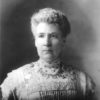

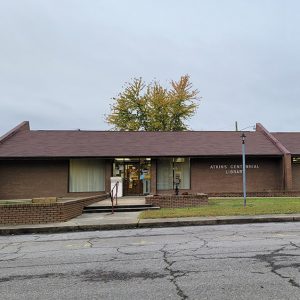
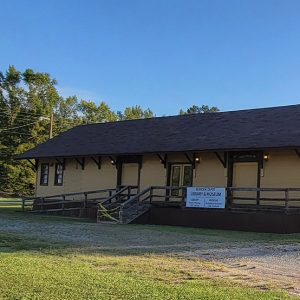



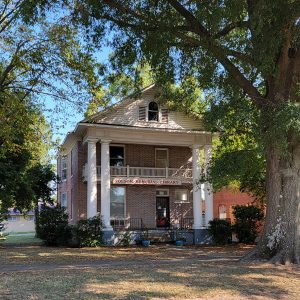


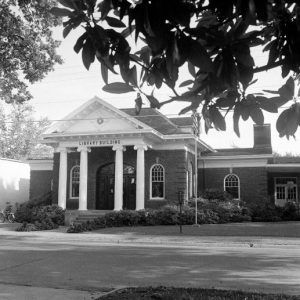



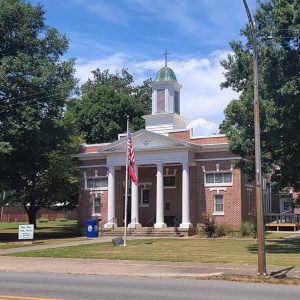

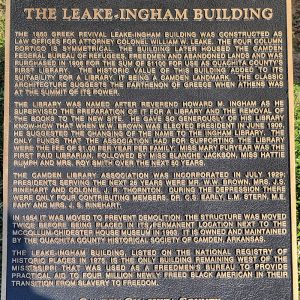
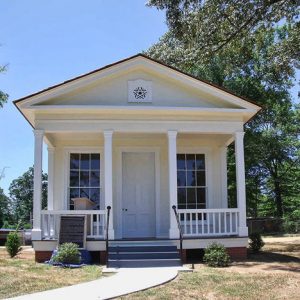


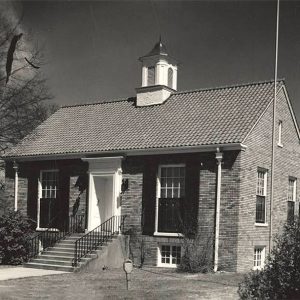
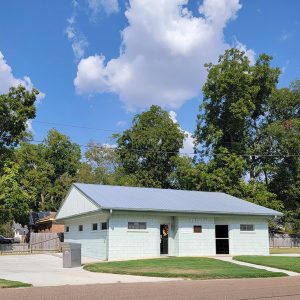

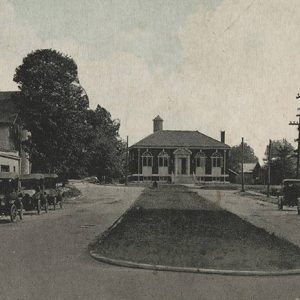
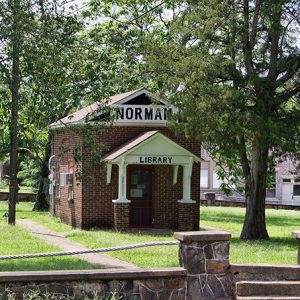





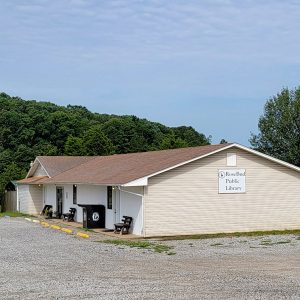
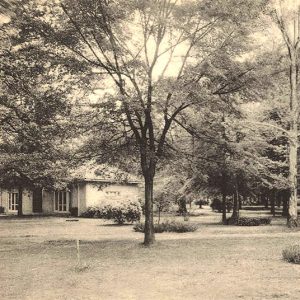
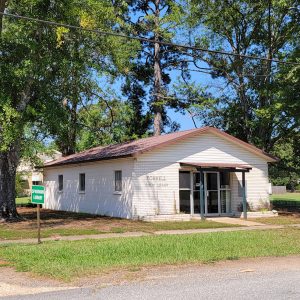



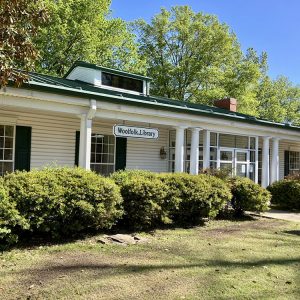





Comments
No comments on this entry yet.